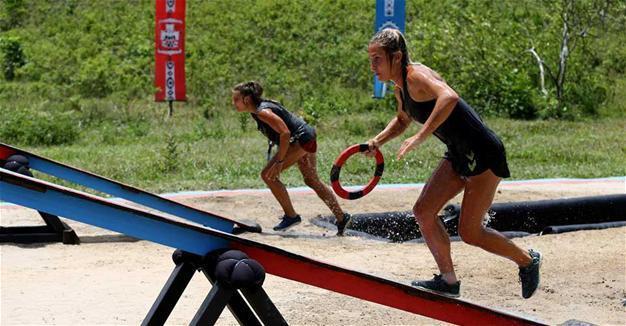Istanbul Bourse wants reality show Survivor Turkey to go public
ISTANBUL – Anadolu Agency
 Borsa Istanbul Chair Himmet Karadağ is set to meet with the producer of the Turkish version of the popular reality show Survivor, Acun Ilıcalı, in accordance with the stock exchange’s latest endeavors to share popular TV shows’ yields with investors.
Borsa Istanbul Chair Himmet Karadağ is set to meet with the producer of the Turkish version of the popular reality show Survivor, Acun Ilıcalı, in accordance with the stock exchange’s latest endeavors to share popular TV shows’ yields with investors. “I will even sell Survivor [bonds] on the bourse. I will meet with Mr. Acun [Ilıcalı] to open Survivor [bonds] to investors and sell it on the bourse; we have asked for an appointment,” Karadağ told state-run Anadolu Agency in an interview on April 29.
Turkey’s main stock exchange Borsa Istanbul is working on new financial instruments that will bring higher yields for lower risks and be based on several unusual products including popular TV series, car manufacturing projects and construction projects.
The bourse head had previously noted that they had met a number of producers of various TV series, including the producer of “Diriliş Ertuğrul,” (The Revival: Ertuğrul), a period drama depicting the life of 13th century Oghuz Turkic figure Ertuğrul. The series is broadcast on the state-run TRT.
Karadağ also talked about the Borsa Istanbul (BIST) 100 index, the benchmark index of Turkey’s main stock exchange, hitting a new record high on April 24 by surpassing its previous record at 93,398 points in May 22, 2013.
Asked if the new surge in BIST index could be attributed to “artificial” price movements, the bourse head said the index had returned to the levels it persisted at before the Gezi Park protests in 2013.
“When we look at basic financial indicators before, during, and after Gezi, the index was at 90 thousand levels before Gezi, but dropped very sharply to 60 thousands [afterwards]. There was a huge increase in the interest rate,” Karadağ said.
“The period that starts with Gezi is in fact a very dramatic and harsh economic coup in all of our financial indicators. The demands at Gezi were not about three or five trees, but instead were financial and economic demands. The demands said, ‘We don’t want Turkey to be an economical power in the region.’”
“Of course there were good-willed people among them [Gezi protesters], but the process’ economic effects were very harsh. If all economic parameters were dramatically affected negatively during Gezi and in its aftermath, Gezi was an economic coup,” he said.
“As far as we see from the figures and graphics, that economic coup was overcome after the [April 16] referendum was completed in a successful way,” Karadağ added.
















